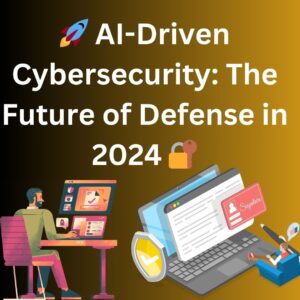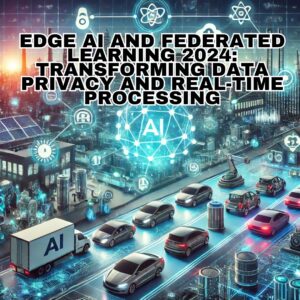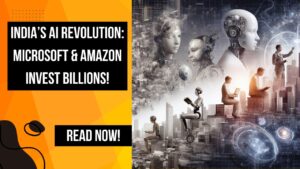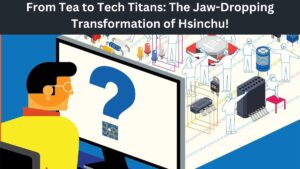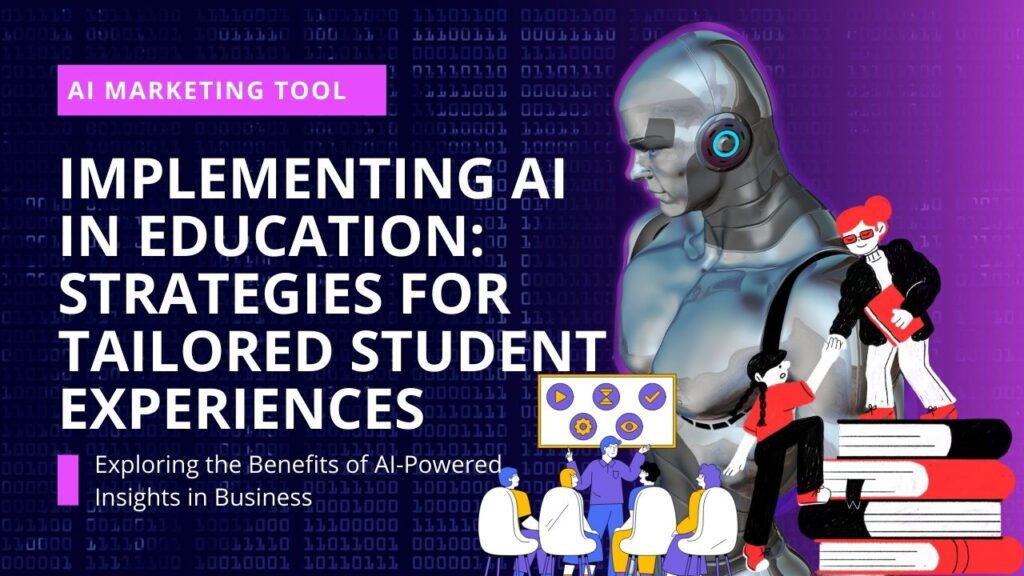
In today’s rapidly evolving educational landscape, Artificial Intelligence (AI) is revolutionizing the way students learn and teachers teach. AI-powered technologies are enabling personalized learning experiences tailored to the unique needs and preferences of each student. From adaptive learning platforms to intelligent tutoring systems and automated grading tools, AI is transforming traditional classrooms into dynamic and interactive learning environments. This article explores the diverse applications of AI in education, highlighting its potential to enhance student engagement, improve learning outcomes, and prepare students for success in the digital age.
Introduction: The Changing Face of Education
Education is undergoing a paradigm shift, driven by advancements in technology and a growing recognition of the need for personalized learning experiences. Traditional one-size-fits-all approaches to education are being replaced by more flexible, adaptive, and student-centered models that leverage AI to meet the diverse needs of learners. By harnessing the power of AI, educators can create customized learning pathways that cater to each student’s strengths, interests, and learning styles, ultimately fostering deeper understanding and long-term retention of knowledge.
AI-Powered Adaptive Learning Platforms
One of the most promising applications of AI in education is the development of adaptive learning platforms that tailor instruction to individual student needs in real-time. These platforms use AI algorithms to analyze student performance data, identify areas of strength and weakness, and dynamically adjust learning materials and activities to provide targeted support and challenge. By personalizing the learning experience for each student, adaptive learning platforms can increase engagement, motivation, and academic achievement, while also enabling educators to more effectively differentiate instruction and provide timely intervention when needed.
AI in Intelligent Tutoring Systems
Intelligent tutoring systems (ITS) leverage AI to provide personalized, one-on-one tutoring experiences that adapt to the needs of individual learners. These systems use advanced algorithms to assess student knowledge and skills, diagnose misconceptions, and deliver customized instruction and feedback in real-time. By simulating the interaction between a human tutor and student, ITS can provide personalized support and guidance across a wide range of subjects and learning domains, from mathematics and science to language arts and foreign languages. Additionally, ITS can track student progress over time, allowing educators to monitor learning outcomes and identify areas for further intervention or enrichment.
AI-Powered Assessment and Feedback Tools
AI is also transforming the way students are assessed and provided with feedback on their learning progress. Automated grading tools use AI algorithms to analyze student responses to quizzes, assignments, and assessments, providing instant feedback on correctness, completeness, and quality. By automating routine grading tasks, educators can save time and focus on more meaningful interactions with students, such as providing personalized feedback and support. Additionally, AI-powered assessment tools can analyze student performance data to identify patterns and trends, helping educators identify areas of strength and weakness and inform instructional decision-making.
AI in Curriculum Design and Content Creation
Another area where AI is making significant strides in education is in curriculum design and content creation. AI algorithms can analyze vast amounts of educational data, including textbooks, articles, videos, and online resources, to identify relevant and engaging learning materials that align with curriculum standards and learning objectives. Additionally, AI can generate personalized learning experiences, such as interactive simulations, virtual labs, and multimedia presentations, that cater to different learning styles and preferences. By leveraging AI to design and create educational content, educators can provide students with engaging, relevant, and accessible learning experiences that promote deep understanding and critical thinking skills.
AI in Student Support and Counseling
AI-powered chatbots and virtual assistants are also being used to provide students with personalized support and counseling services. These virtual agents use natural language processing (NLP) and machine learning algorithms to understand and respond to student inquiries, providing information, guidance, and emotional support as needed. Whether answering questions about course schedules, academic requirements, or career pathways, AI-powered chatbots can provide students with timely and accurate assistance, freeing up educators to focus on more complex and personalized interactions. Additionally, AI can analyze student behavior and engagement data to identify at-risk students and provide early intervention and support services to help them succeed academically and emotionally.
Ethical and Social Considerations
While the potential benefits of AI in education are significant, there are also ethical and social considerations that must be addressed to ensure responsible and equitable deployment of AI-powered technologies. Concerns have been raised about the potential for bias and discrimination in AI algorithms, particularly in areas such as student assessment and predictive analytics. Additionally, there are questions about data privacy and security, as well as the impact of AI on teacher autonomy and job security. It is essential for policymakers, educators, and technology developers to work together to address these concerns and ensure that AI is deployed in a manner that promotes equity, accessibility, and transparency.
Future Directions and Conclusion
Looking ahead, the future of AI in education holds immense promise, with continued advancements in AI-driven technologies expected to further transform teaching and learning. As AI becomes more integrated into educational systems, we can expect to see improvements in student engagement, learning outcomes, and educational equity. By harnessing the power of AI to personalize learning experiences, educators can create more inclusive and effective learning environments that meet the needs of every student. With thoughtful planning, collaboration, and innovation, AI has the potential to revolutionize education and empower learners to succeed in an increasingly complex and interconnected world.

